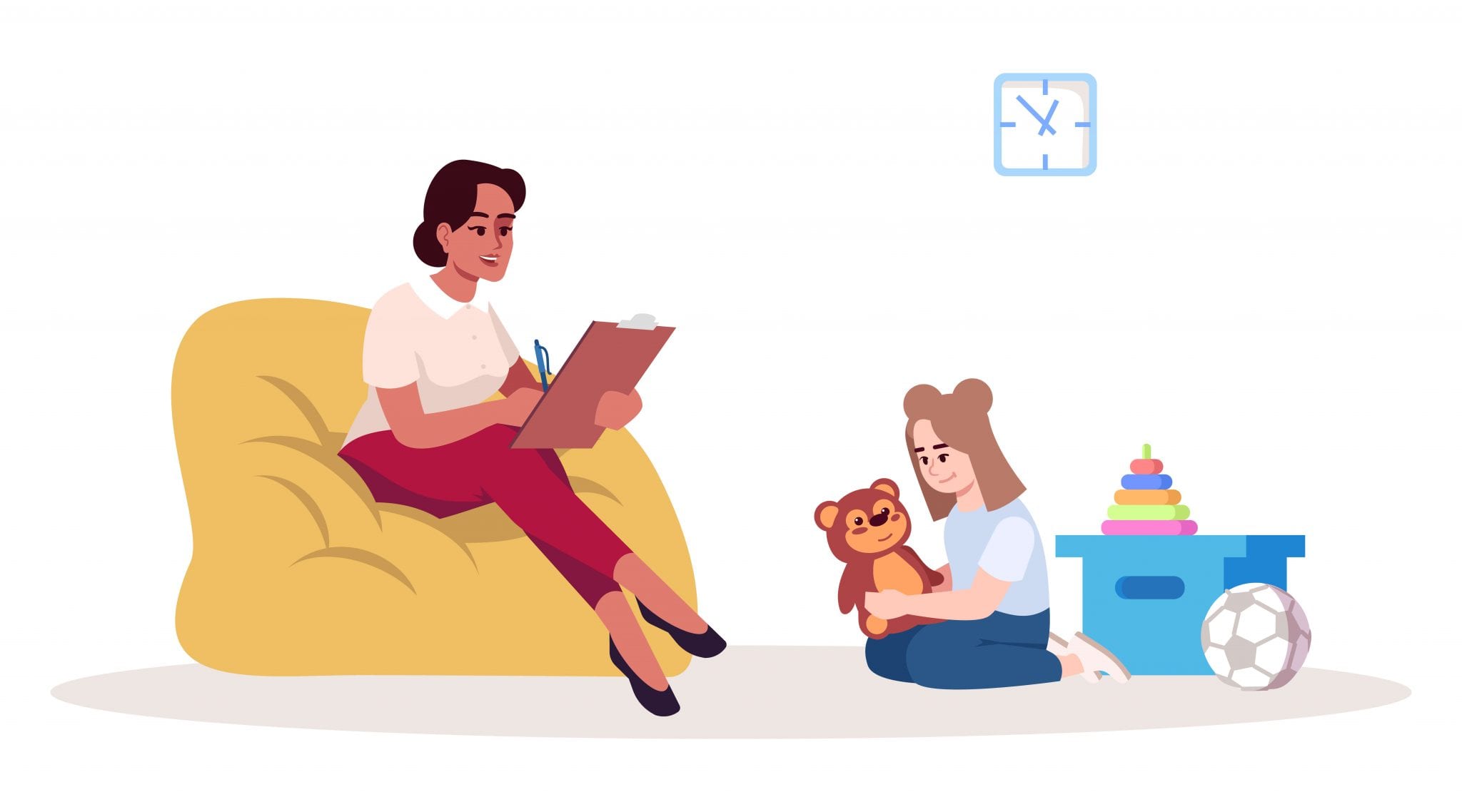Child Development: Play Therapy in Dubai
This article has been researched and written by Nayla Daou. AI has not been used in producing this article.
Every child deserves to feel safe, empowered, understood, connected, and loved. Play therapy is based on the foundation of providing a safe environment for children to process their emotions and develop the social, emotional, and coping skills they need to overcome trauma and thrive in life.
What is Play Therapy?
Play therapy is a counseling method that uses play to communicate with children to help resolve psychological challenges. Play therapy allows children to naturally express their emotions and relate to the world through play. It has been theorized play therapy benefits social integrations, emotional modulation, trauma recovery, and standard growth and development.
In 1909 Sigmund Freud was the first to publish a documented case on the therapeutic use of play, focusing on a five-year-old boy demonstrating a phobia of horses entitled “Little Hans.” Subsequently, Freud’s student, Melanie Klein, and his daughter, Anna Freud, asserted the theoretical premise for the use of play. In particular, Klein theorized a child’s spontaneous play, was a substitute for the free association used within adult psychoanalysis.
What are Common Play Therapy Techniques?
For your child, their play therapy sessions won’t feel like a “session” at all. During their therapy, a child psychologist will “play” with your child using puppets, games, coloring, books, and other creative activities to help them engage. This allows children to work through their challenges, feelings, and memories through symbolic expression, using their toys as a medium to express their experiences.
Play therapy can be directive or non-directive. In the direct approach, the therapist will suggest specific toys or activities for use during a play therapy session. The non-directive approach is less structured and allows the child to choose any toy or game they wish to interact with. During both directive and non-directive therapy sessions, the child psychologist will observe and participate as needed.
Play therapists in Dubai may use techniques that involve:
- storytelling
- role playing
- toy phones
- puppets, dolls, or action figures
- arts and crafts
- books and coloring
- sand and water play
- blocks or other building toys
- musical instruments
- dance and creative movement
- creative visualization
- and more

What Can Play Therapy Treat?
Play therapy is recommended for children between the ages of 2 and 12, experiencing a wide range of symptoms, including:
- aggressive behaviors
- challenges with impulsivity, self-control, and boundaries
- trauma, neglect, or abuse
- bullying or social anxiety
- low self-esteem
- anxiety
- depression
- bedwetting, night terrors, or nightmares
- ADHD & ADD
- challenges with academic success and motivation
- grief or bereavement
- and more
What are The Benefits of Play Therapy?
According to Play Therapy International, up to 71 percent of children referred to play therapy experience a positive change. As the trust between a child and their therapist grows, children become more comfortable with their child psychologist, and they play more freely. This opens the lines of communication to empower growth, development, and healing (when applicable).
Potential benefits of play therapy include:
- taking responsibility for actions and behaviors
- developing coping strategies and a positive mindset
- increased self-esteem
- increased empathy and respect for others
- decreased anxiety
- learning how to communicate and express feelings in a productive manner
- stronger social skills
- stronger relationships with friends and family
What are The Qualifications for a Play Therapist?
Child psychologists who specialize in play therapy receive post-Graduate level training and have extensive experience working with children. Additionally, play therapists meet the following professional, educational, and work experience requirements:
- Academic qualifications: a Bachelor’s degree in Psychology, Early Child Development, Education, Social Work, Mental Health (Psychiatric) Nursing, or an MA in Play Therapy.
- Professional qualifications: teaching children, nursing, social work, art, drama, visual arts, occupational therapy, etc.
- Work experience: at least five years working with children in a relevant field.
Clearminds Play Therapy
Play therapy services help parents raise confident and capable children by empowering children with the essential skills they need to navigate their challenging worlds. At Clearminds, our team of child development psychologists believes that with compassionate care, and the right tools and solutions, your child can develop the coping skills and positive mindset they need to achieve positive change and developmental growth. If you and your significant other could benefit from couples therapy, we are here to help also.
Contact a member of our team to schedule your consultation today.
Validation: How To Do That ?
This article will discuss what validation means, what it does not mean, and how to effectively use …
The Hidden Language of Your Nervous System
Before you say, “I’m fine,” your nervous system has already responded. That response doesn’t …
From the Ahi Brotherhood to Attachment Based Mentoring: A Legacy of Belonging
In today’s fast-paced world, where modern life pressures parents to maximize productivity …
Understanding Autism: A User Friendly Perspective
Autism is often described as a “spectrum,” which can be somewhat misleading as it can seem …
Panic, Stress, and Anxiety Facing the Giant Praying Mantis
We often throw around words like panic, stress, and anxiety as if they were the same. They’re not …
Why That Chewing Noise Drives You Crazy
It’s called misophonia, which literally means “hatred of sound”! It happens when someone experiences …
Are Freudian Slips Accidents or Unconscious Desires?
Suddenly, there is silence, eyebrows are raised, and you’re left mumbling, while attempting to explain …
Effectiveness of Authoritative Parenting in Fostering Autonomy
Initially, a newborn relies completely on their parent, but over time, they transition from being an object …
Rethinking Neurodiversity and Autism
I want to explore autism beyond outdated concepts of deficits and limitations. In the newsletter …
Did You Know – Crows Can Be Quite Machiavelic
Crows have become quite the residents in Dubai’s landscape. Although first spotted around …











